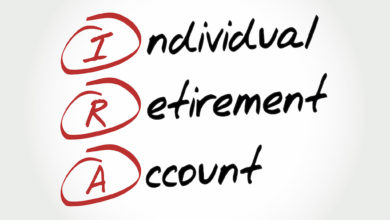Retirement Reality Check: Debunking the Top 8 Retirement Myths

Are you prepared to proactively manage your retirement planning with assurance? Buckle up! We’ll dispel the most popular 8 myths related to it so that you can gain beneficial insights and a unique outlook on how best to achieve financial safety in your later years. Don’t let outdated ideas hinder you; start taking steps toward an advantageous retirement now!
Key Takeaways
- Create a tailored budget to maximize retirement savings and prepare for potential expenses.
- Invest in personal savings, company pensions, and the stock market with help from a financial advisor.
- Utilize resources like the Institute of Financial Wellness to achieve your retirement goals!
Myth #1: Retirement Expenses Will Drastically Decrease
When retiring, it is important to plan financially as expenses will still occur. How much depends on the lifestyle you choose and your spending habits. If income stays similar to pre-retirement levels, then one may qualify for certain tax breaks – budgeting should be tailored according to this scenario in order to achieve a stress-free retirement life. Strategic financial planning must be carried out carefully, considering all aspects of retirement, such as income and expenses, if long-term security is desired.
Myth #2: Social Security Will Be Sufficient for Retirement Income

A retirement income that is dependent only on Social Security can be risky and not lead to financial stability. To plan for a secure old age, the most important element in your strategy should be diversification of income sources such as personal savings, company pensions, plus Social Security. These are all included under defined contribution plans. What you get from retirement years beforehand means less money expected through this system, which may endanger securing adequate amounts of capital when it comes time for retiring.
Many retirees fall into the retirement myth that Social Security alone will suffice, but the reality is that healthcare expenses, housing costs, and other retirement spending can erode its purchasing power over time. It’s crucial to consult a financial advisor to start saving and create a comprehensive retirement plan that includes not just Social Security but also retirement savings and investment returns. By doing so, you can ensure a secure and happy life during your golden years.
Myth #3: Health Care Costs Are Fully Covered by Medicare

In order to be fully prepared for your retirement years, it’s important to understand that Medicare does not cover all of the healthcare costs associated with them. Though it provides relatively affordable coverage regarding doctor visits and medications, extra expenses such as deductibles and copays must be taken into account.
To ensure you are ready for any medical-related expenditures during this stage in life, explore potential solutions like private issuer insurance plans or contracts that involve Medicare itself. Investing in a life insurance policy or an annuity that includes long-term care benefits is also recommended so that when enjoying those ‘golden years,’ there will be no cause for concern over finances caused by health issues being inadequately covered.
Myth #4: Working During Retirement Isn’t Necessary
Retiring from full-time work can be difficult for many retirees, yet there are numerous benefits to working part or full-time in retirement. These advantages include increased Social Security payments, extra income needed to cover costs of living, and improved overall physical and mental health due to stimulation.
Having a financial buffer provides greater security during this period of life. On the contrary, not using one’s skillset could lead to low levels of contentment as well as heightened stress caused by fear about finances over those years when retired without regular earnings coming into play. Planning ahead is key. Exploring job opportunities tailored to what individuals enjoy doing can help retirees formulate an effective strategy that allows both leisure activities while maintaining secure provisions long term through their chosen source(s) of retirement incomes earned thereafter, leaving employment fully.
Myth #5: The Stock Market Is Too Risky for Retirement Investing

More than half of those surveyed in 2016 expressed optimism about the stock market, expecting it to increase in value. A fifth predicted that there could be a 20% drop in stock values during the following year.
To maintain purchasing power and protect retirement savings from inflation while preparing for any potential volatility on Wall Street, one must have an appropriate investment portfolio. This is where financial advisors can step up to help with making informed decisions related to your retirement plans, as well as covering healthcare costs or other expenses you might incur down the line.
Myth #6: Downsizing Is Always the Best Housing Option
When considering retirement living options, a financial advisor can help assess the potential costs of downsizing. 53% of surveyed individuals have expressed hope that their home value will rise in the next 12 months. Yet, nearly 20% worry it could decline by at least 30%. It is important to evaluate personal preferences like lifestyle and family proximity as well as any assisted living services needed before making an informed decision about relocating.
Myth #7: It’s Too Late to Start Saving for Retirement
It is never too late to start putting money away for retirement, as doing so can prove essential in terms of one’s financial security and well-being. Even small contributions will be greatly magnified over time due to compound interest growth on investments.
To achieve a comfortable nest egg that can sustain them during their golden years, individuals should look into contributing at least 15% of their income towards retirement savings each month or year, depending upon circumstances. This way, they are able to make the most out of both long-term investment returns and what little funds may remain after spending has been taken care of from salary/earnings, etc.
Myth #8: DIY Retirement Planning Is Enough
When it comes to retirement planning, trying to do everything on your own can lead to costly blunders and missed chances. Getting assistance from a financial expert is key in devising an ideal plan for you according to their specific requirements and desires.
The Institute of Financial Wellness offers helpful resources like tracking down local investment advisors and providing the necessary advice that meets long-term retirement aspirations as well.
Overcoming Retirement Myths: Tips for Success
Having the right knowledge at hand during your retirement planning journey can help ensure you are making informed decisions and not making any costly errors. With this information, it is possible to confidently move forward on creating a plan that will give you security and satisfaction in your later years.
To achieve success with these goals, an active approach needs to be taken when preparing for retirement while also keeping realistic objectives and focusing on long-term outcomes in mind. Debunking the various myths surrounding how one should go about their post-working life helps stay focused amidst all of these challenges as well.

The Institute of Financial Wellness is your Ally in Retirement
The Institute of Financial Wellness is a powerful online platform designed to support individuals in achieving their financial objectives and building strong retirement plans. Offering an array of educational materials, such as webinars, courses, and personalized coaching opportunities – this institute grants the tools needed to increase money wisdom for creating steady economic security during one’s golden years.
Reaching fiscal stability through retirement planning starts with utilizing these insightful resources from The Institute of Financial Wellness that can give you control over your future wealth.
Full Summary
Don’t let the myths surrounding retirement derail your planning journey. Get on track by taking a proactive approach, setting reasonable expectations, and focusing on long-term objectives. Doing so can lead you to an exciting future filled with security in your golden years. Take control of your retirement preparation today for brighter days ahead!
Frequently Asked Questions
What are the top 5 retirement mistakes?
When prepping for retirement, there are a few essential mistakes to be avoided: no plan in place, not saving or investing correctly, and overlooking any employer-sponsored matching benefits. Failing to consider the tax implications of your situation and disregarding health care costs.
What is the 3% rule in retirement?
Retirement experts suggest the Three Percent Rule for a secure and sustainable retirement: withdrawing no more than three percent of your initial portfolio value in retirement annually.
This amount can then be adjusted for inflation while taking into consideration any market fluctuations. Following this rule allows for an average, reasonably secure retirement.
What is the 50% rule at retirement?
When it comes to planning for retirement, the 50% rule can help. It suggests that you allocate no more than half of your take-home pay toward essential expenses and dedicate 15% of pre-tax income (including employer contributions) toward a savings plan. This method is an easy way to make sure you’re on track with reaching those retirement goals!
What is the number one mistake retirees make?
Retirees should be proactively planning for medical and long-term care costs in order to avoid financial hardship later on. Modifying your budget appropriately will ensure that you are well-prepared with the right plan of action when such expenses arise. Investing time now into researching how best to prepare can help retirees feel more secure about their future well-being.
Can I rely solely on Social Security for retirement income?
Retirement should not be dependent solely on Social Security income. Diversifying with other sources, such as employer pensions or personal savings, will provide additional financial security. Retirement planning requires sound investments to ensure adequate income throughout retirement years.
After 18 years as President and Founder of TheaterMania and OvationTix, Darren is excited to be on a new journey as the President and Co-Founder of The Institute of Financial Wellness. (The IFW)
For consumers, The IFW provides financial education, resources, and services that help people live their best life.
For Financial Professionals, The IFW provides proven sales and marketing systems, state-of-the-art technology, training, and support to financial professionals nationwide. The IFW helps financial professionals grow their practices to the next level! IFW Certified Financial Professionals are an elite group of professionals that, together with the IFW, help people succeed financially and live their best lives.






